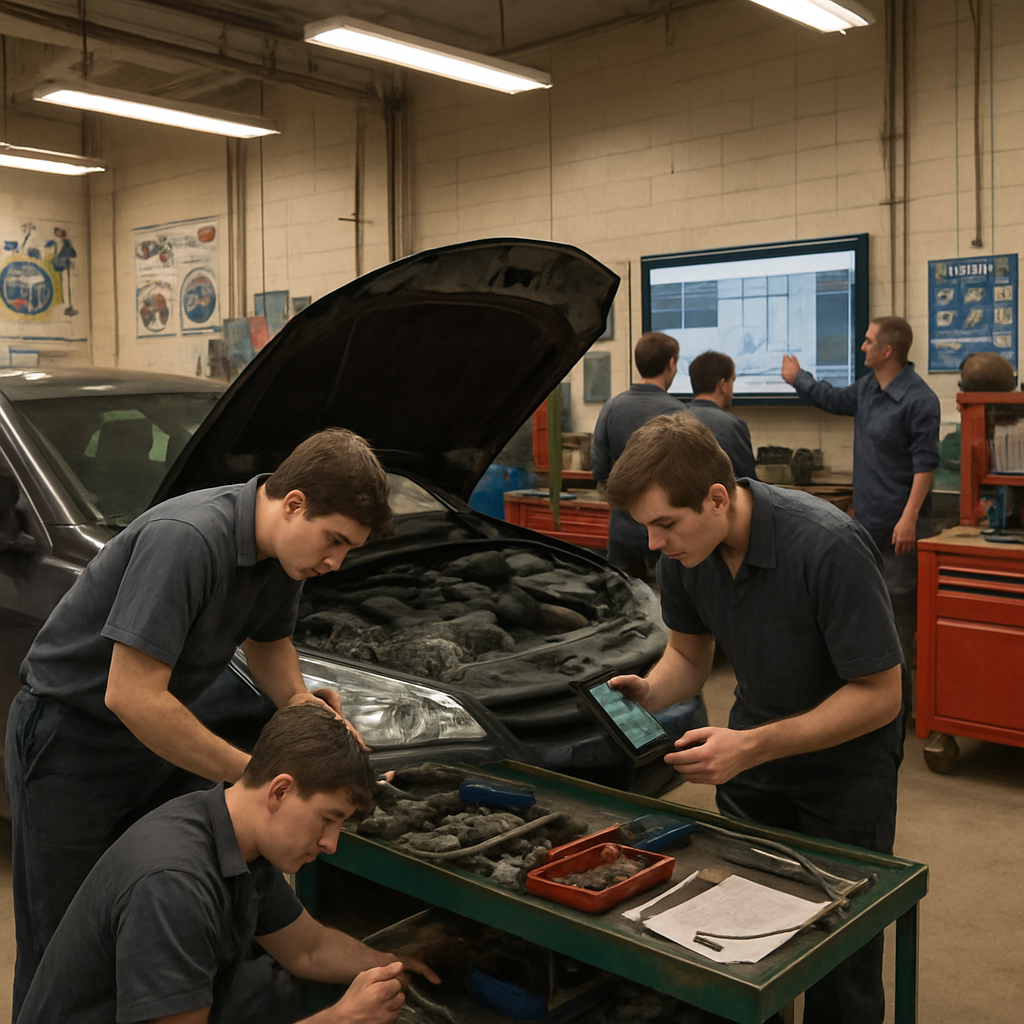The Importance of Hands-On Training in the Automotive Industry
In today’s fast-paced automotive industry, theoretical knowledge alone is not enough to excel. Hands-on training is crucial for automotive technicians who want to stay ahead in their careers. Engaging directly with the tools, technologies, and real-world problems you'll face daily provides a deeper understanding that books and lectures simply can't offer. Hands-on training allows technicians to apply what they've learned in a controlled environment, gaining practical skills that are immediately transferable to the workplace. This type of experiential learning can significantly shorten the learning curve and increase job readiness.
Real-World Experience: Learning Beyond the Classroom
While classroom instruction lays the foundation, real-world experience builds the walls and ceiling of your professional capabilities. Real-world experience means dealing with actual automotive issues, diagnosing problems in live settings, and working under the pressure of real-time constraints. It’s about understanding the nuances and subtleties that can make the difference between a quick fix and a long-term solution. This practical exposure helps technicians become more adept at handling unexpected challenges, making them invaluable assets to employers. It also fosters a sense of confidence and competence, traits that are essential for career advancement.
Inspiring Apprenticeship Stories: Journeys to Success
One of the most effective ways to learn is through the experiences of others. Apprenticeship stories can be incredibly inspiring and educational. Take, for instance, the journey of a technician who started as an apprentice and climbed the ranks to become a master technician. These stories often highlight the trials and tribulations faced along the way, offering invaluable lessons in perseverance, dedication, and continuous learning. Hearing about the successes and challenges of others can motivate you to push through your own obstacles and stay committed to your career goals. Apprenticeships provide a structured pathway to gain hands-on experience while learning from seasoned professionals, ensuring that you gain both knowledge and practical skills.
Pathways to Certification: Achieving Professional Excellence
Certification is a critical milestone in any automotive technician’s career. It serves as a formal recognition of your skills and expertise, making you more marketable to employers. There are various certification programs available, each designed to validate different skill sets and levels of expertise. Whether it’s the ASE (Automotive Service Excellence) certification or manufacturer-specific programs, achieving certification demonstrates your commitment to professional excellence. It also opens up more advanced career opportunities and can lead to higher earning potential. Certification is often accompanied by rigorous training and testing, ensuring that only the most qualified technicians receive this prestigious acknowledgment.
The Role of Mentorship in Skill Development
Mentorship plays a pivotal role in the professional development of automotive technicians. Having a mentor means having access to someone who has been through the trenches and can offer guidance, support, and valuable insights. Mentors can help you navigate the complexities of your career path, offering advice on everything from technical skills to soft skills like communication and customer service. They can also provide networking opportunities, helping you connect with other professionals in the industry. A good mentor will challenge you to push your boundaries while providing the support you need to succeed. The relationship between mentor and mentee is mutually beneficial, fostering growth and development for both parties.

How to Get Started: Finding the Right Training Program
The first step in enhancing your skills through hands-on training is finding the right program. Look for programs that offer a blend of classroom instruction and practical experience. Accredited institutions and programs with strong industry ties often provide the best opportunities for real-world learning. Additionally, consider programs that offer apprenticeship opportunities, as these can provide a direct pathway to employment. Research the curriculum, speak to alumni, and visit the facilities if possible. Make sure the program aligns with your career goals and offers the resources you need to succeed. Taking the time to choose the right training program will set the foundation for a successful and fulfilling career in the automotive industry.
Embarking on a journey of hands-on training, gaining real-world experience, and achieving certification can significantly boost your skills and career opportunities as an automotive technician. With the right mindset and resources, you can unlock your full potential and achieve professional excellence.








